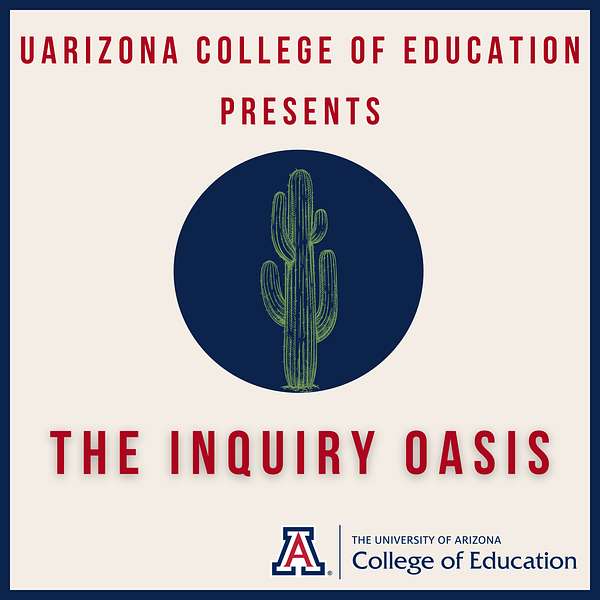
The Inquiry Oasis: A UArizona College of Education Podcast
Welcome to "The Inquiry Oasis", a bi-monthly podcast presented by the University of Arizona College of Education. Join us as we shine a spotlight on our faculty members, offering them a platform to discuss their impactful research in areas such as educational psychology, teacher education, and school leadership, among others.
From their personal journeys and motivations to the transformative effects their work has on lives both locally and globally, we offer a window into the multifaceted world of education research. Recorded in our Digital Innovation and Learning Lab, each episode explores the dynamic blend of cultures and ideas inspiring our faculty's research.
Join us on the 1st and 3rd Wednesdays of every month for insightful conversations that unpack the power and potential of education. Whether you're an educator, a student, or a lifelong learner, "The Inquiry Oasis" is your go-to source for gaining a deeper understanding of the passion, drive, and innovation at the heart of education.
Discover more at https://coe.arizona.edu/
The Inquiry Oasis: A UArizona College of Education Podcast
Inquiry Oasis Season 2: Judy Marquez Kiyama
Dean Berry of the College of Education and Dr. Judy Marquez Kiyama, a professor of Educational Policy Studies and Practice, discuss the importance of culturally responsive curriculum and pedagogy at the University of Arizona and the history of Funds of Knowledge.
In this episode, Dr. Kiyama shares her journey at the University of Arizona, from being a first-generation college student to holding various roles within the university and how funds of knowledge has played a role throughout her journey in academia. Dr. Kiyama discusses her research here at the University of Arizona and the various previous and current faculty members within the College of Education that have had an impact on her work and journey.
Additionally, Dr. Kiyama shares her work developing the Cultural Responsive Curriculum Development Institute with campus leaders and how the institute focuses on small, intentional changes rather than overhauling entire courses. It covers topics such as culturally relevant pedagogy, inclusive assessment, and curriculum design. The program has fostered collaboration across different colleges and departments, creating a community of practice among faculty. Dr. Kiyama highlights the transformative impact of the institute on faculty's teaching philosophies and the importance of continuous engagement in culturally responsive practices.